The best otoscopes for parents, medical students and pet owners
Check for health problems in your own ears, your family's and your pets, with the best otoscopes
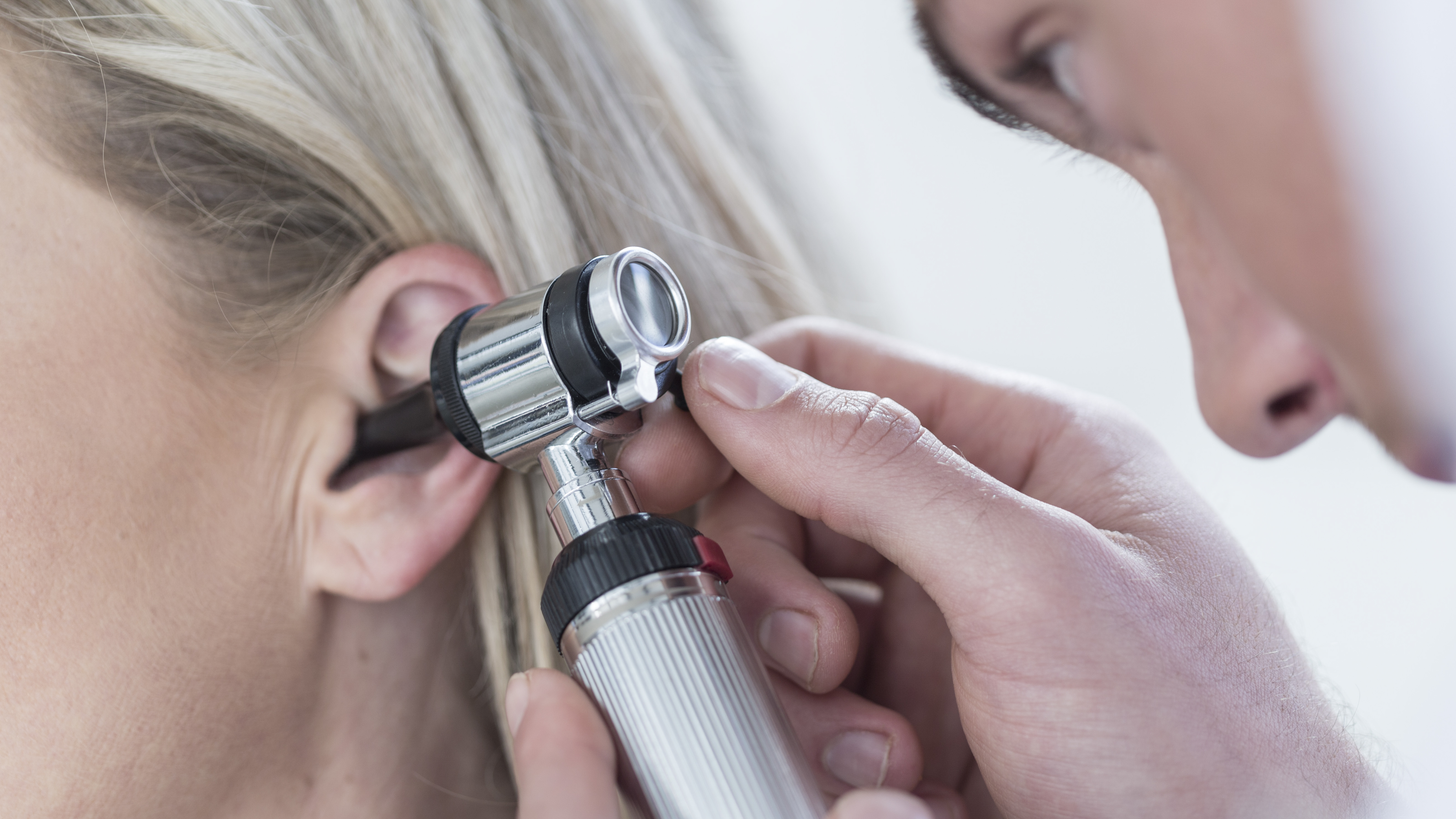
The best otoscopes allow both healthcare professionals and ordinary people to examine the ear canal and tympanic membrane with precision. That can help you detect infections, foreign bodies and structural abnormalities, helping to protect your ear health and that of your family and pets.
There are a diverse range of otoscopes on the market today, from cheap, analogue handheld models to advanced digital versions with imaging capabilities. They vary considerably in terms of illumination quality, magnification power, battery life, and ergonomics, not to mention price.
For this comprehensive guide, we've evaluated a range of options, at a range of prices. Our guide will walk you through essential features to consider and recommend specific models tailored to different uses and expertise levels.

With over 20 years of expertise as a tech journalist, Adam brings a wealth of knowledge across a vast number of product categories, including drones, timelapse cameras, home security cameras, NVR cameras, photography books, webcams, 3D printers and 3D scanners, borescopes, radar detectors… and otoscopes.
The Quick List
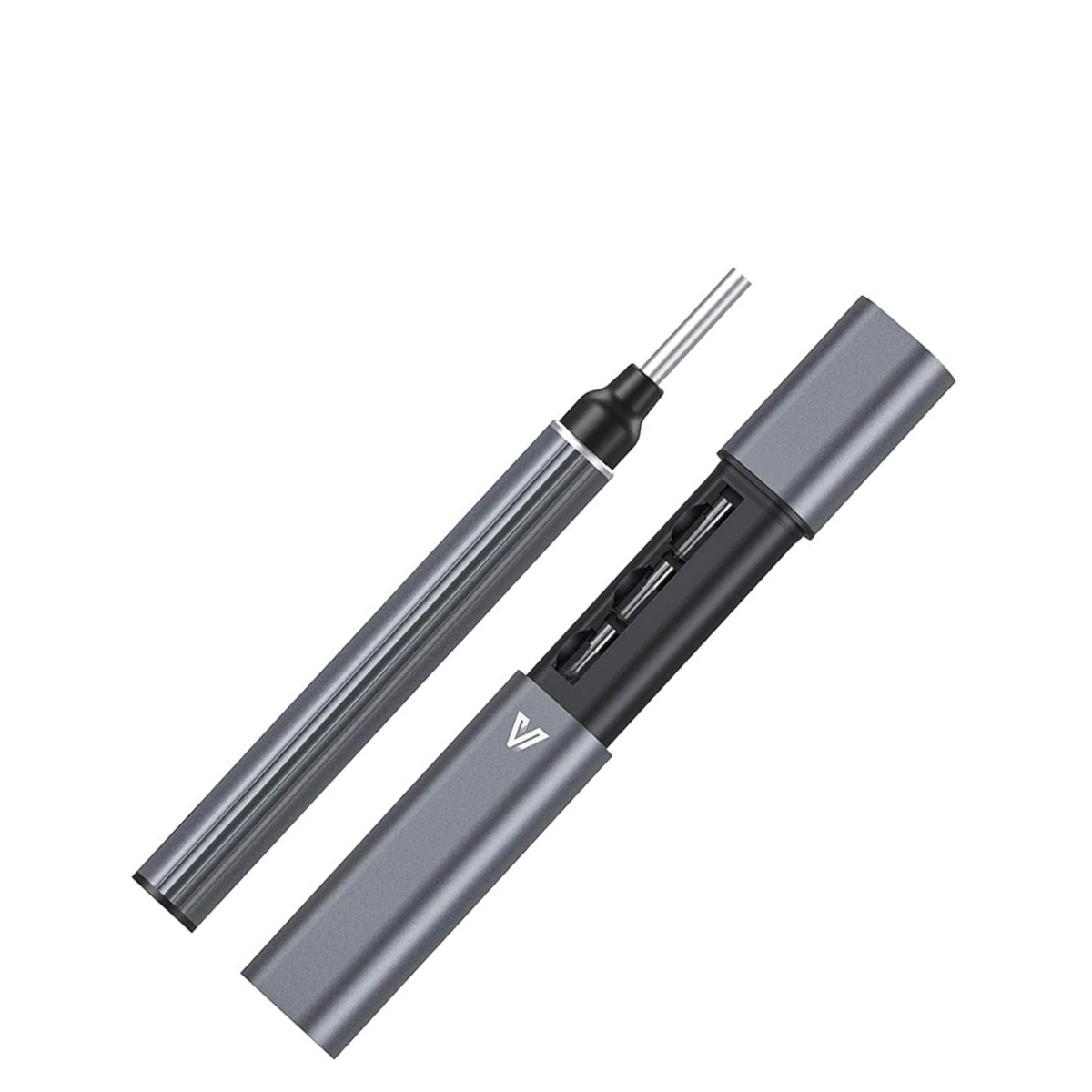
We'll start with the best otoscope for most people today. With good lighting, plenty of tools and a neat design, this ticks all the boxes – and at a respectable price too.
Read more below
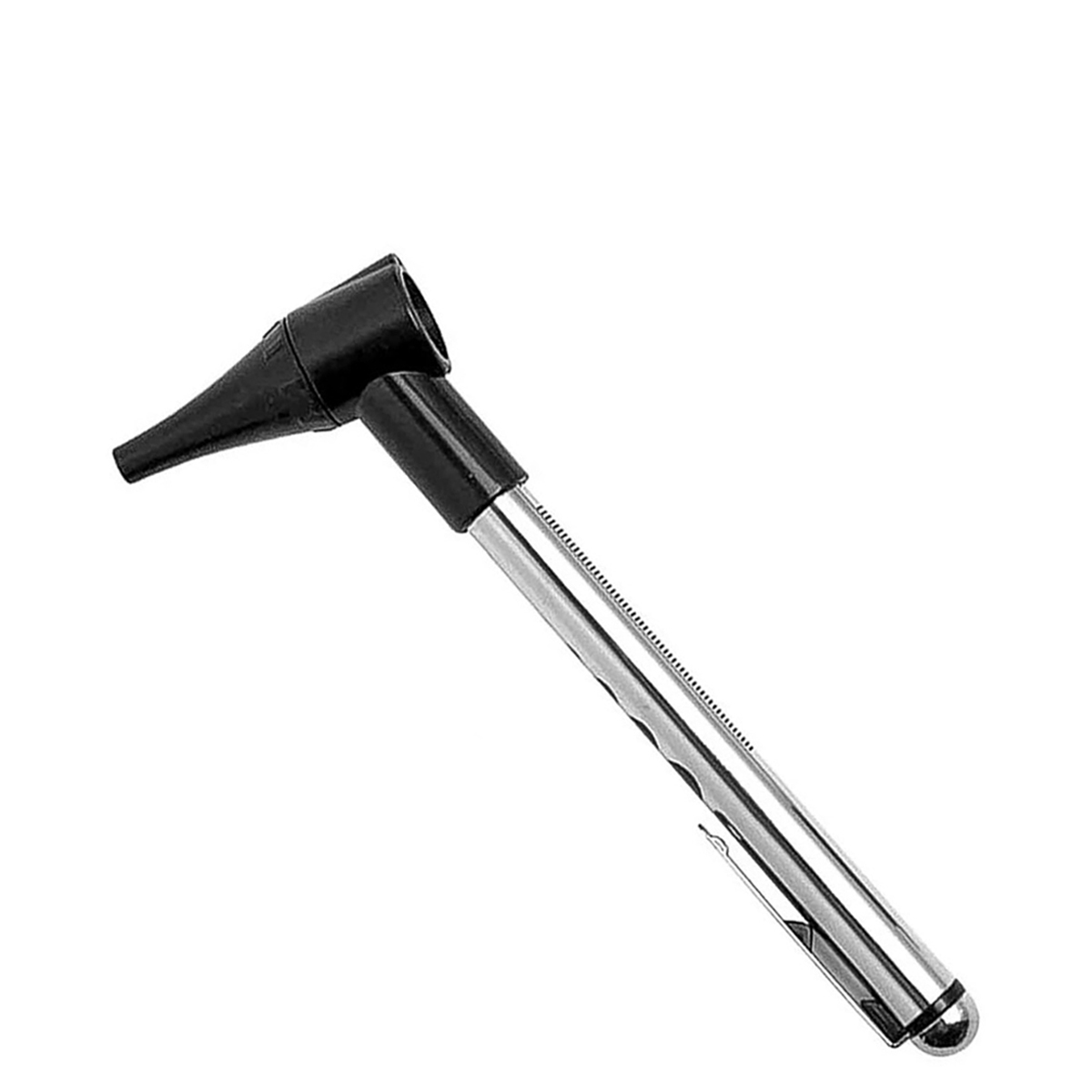
Here's our best budget buy. There’s not a lot to this otoscope, but its low price and decent functionality means it’s still a good option to keep around in case it’s needed.
Read more below
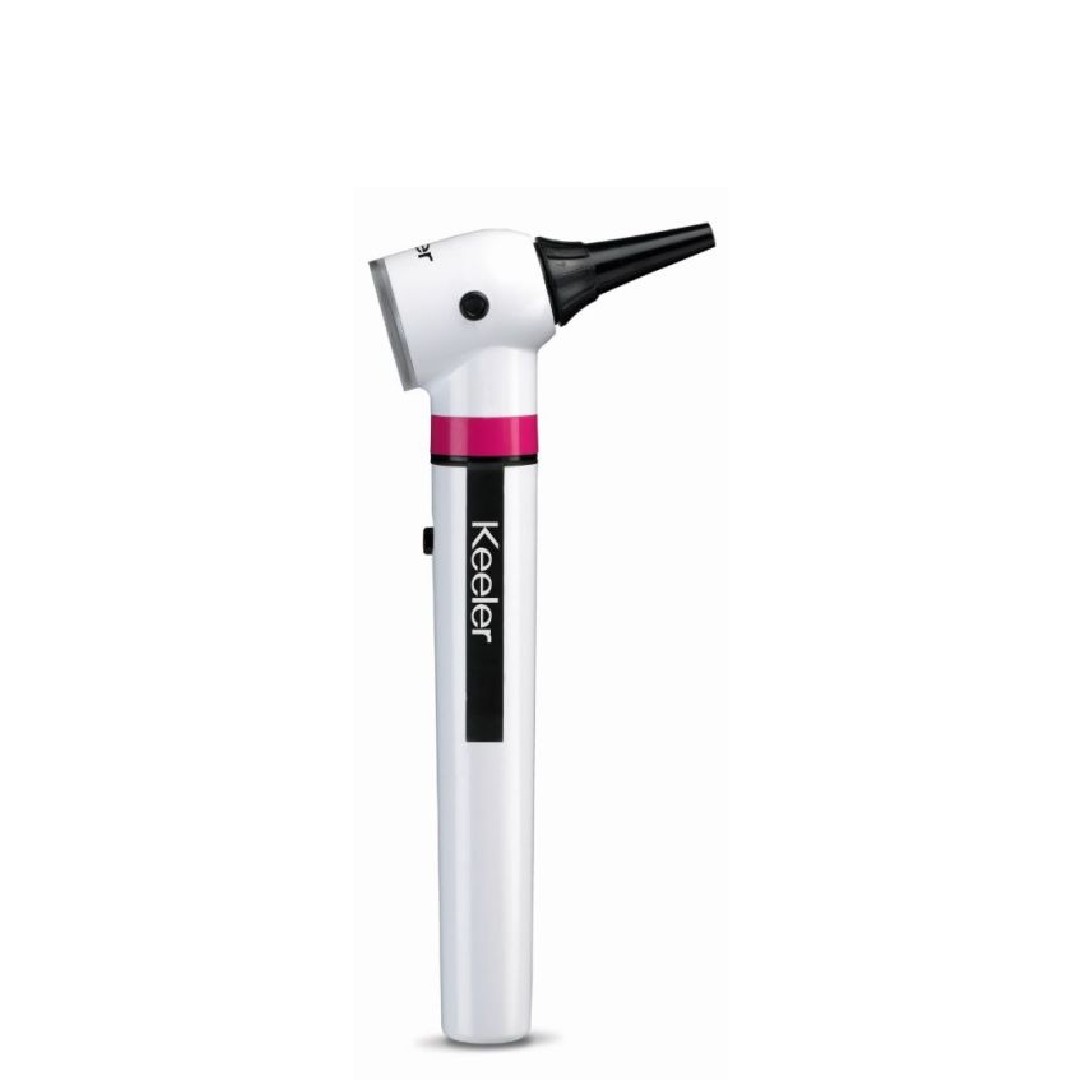
If you're looking for maximum illumination, the Keeler Jazz LED Pocket Otoscope combines professional-grade examination capabilities with pocket-sized convenience.
Read more below
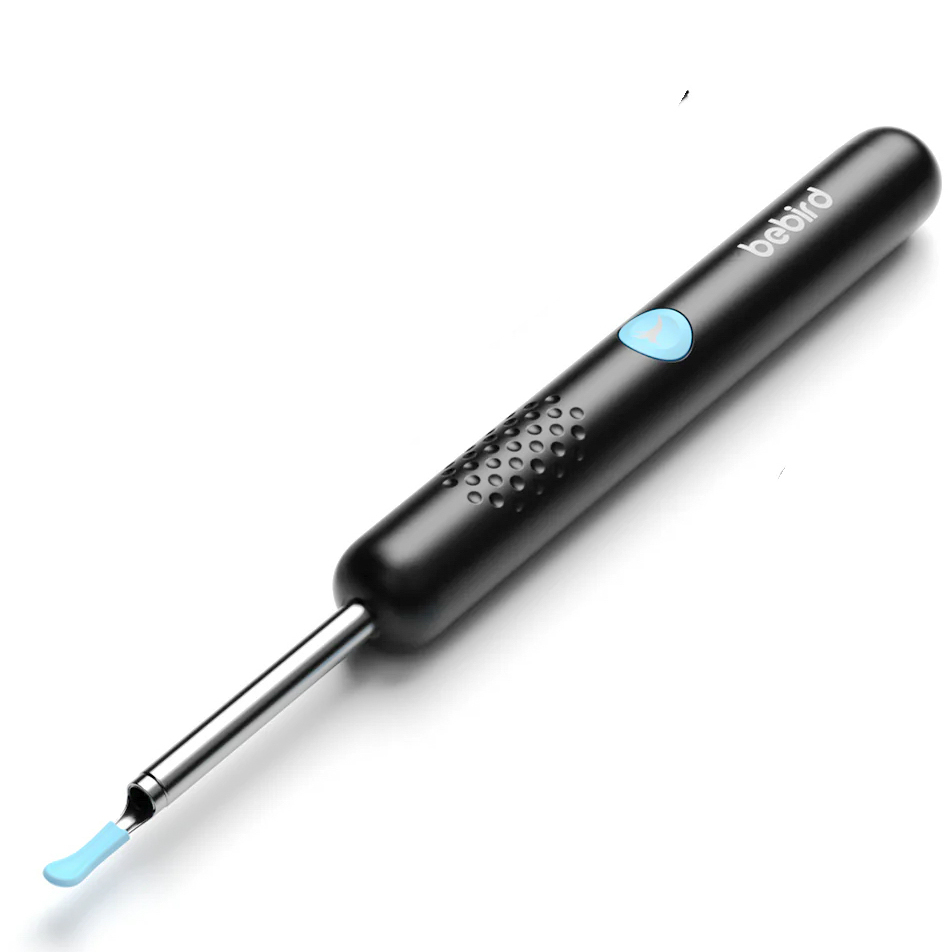
Specifically interested in wax removal? This affordable kit includes a choice of ear tips for added comfort and safety, plus accessories for cleaning mouths and noses.
Read more below
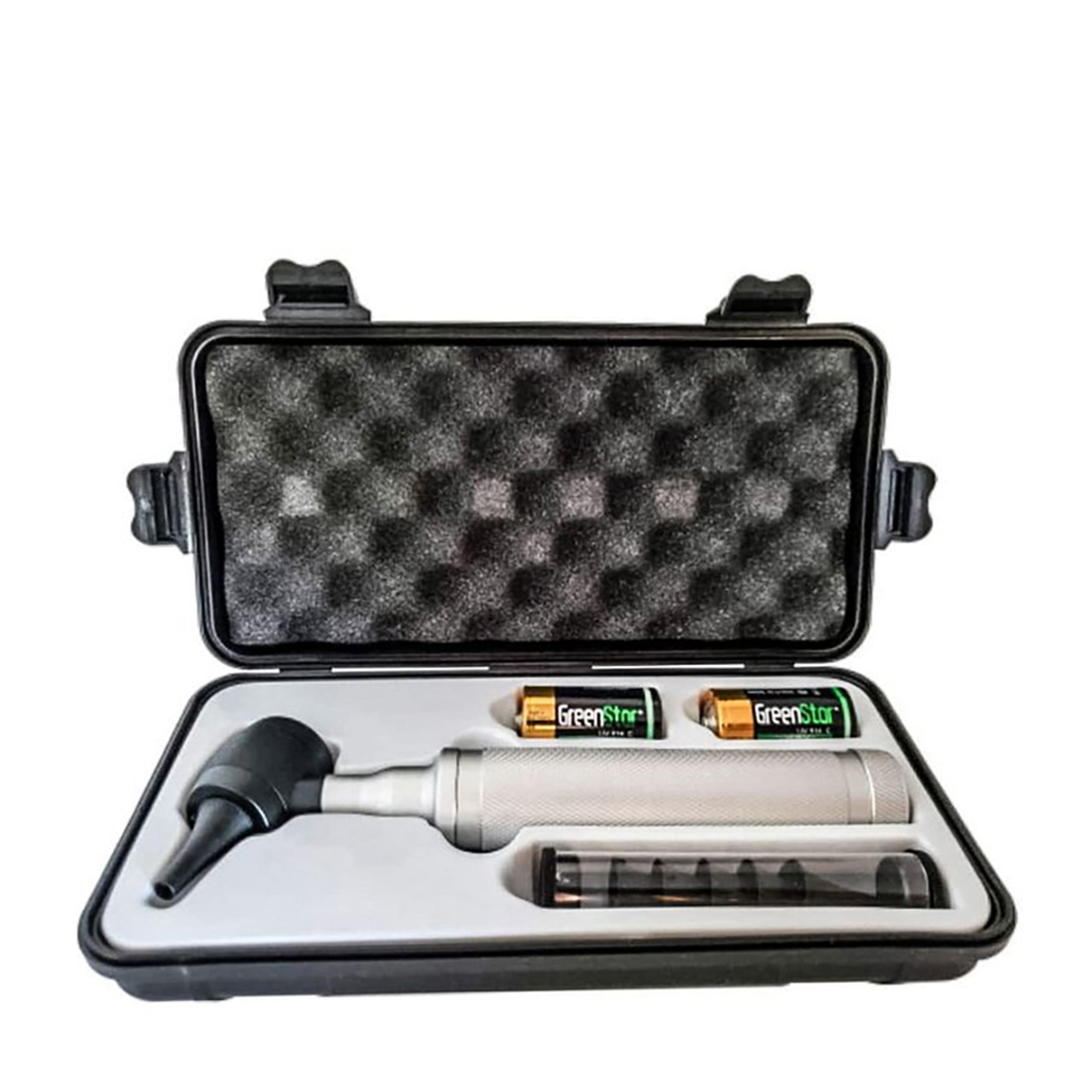
If you're a responsible parent concerned for your kids' health, here's our top buy. This family-oriented otoscope is not the cheapest, but we appreciate the attention to detail.
Read more below
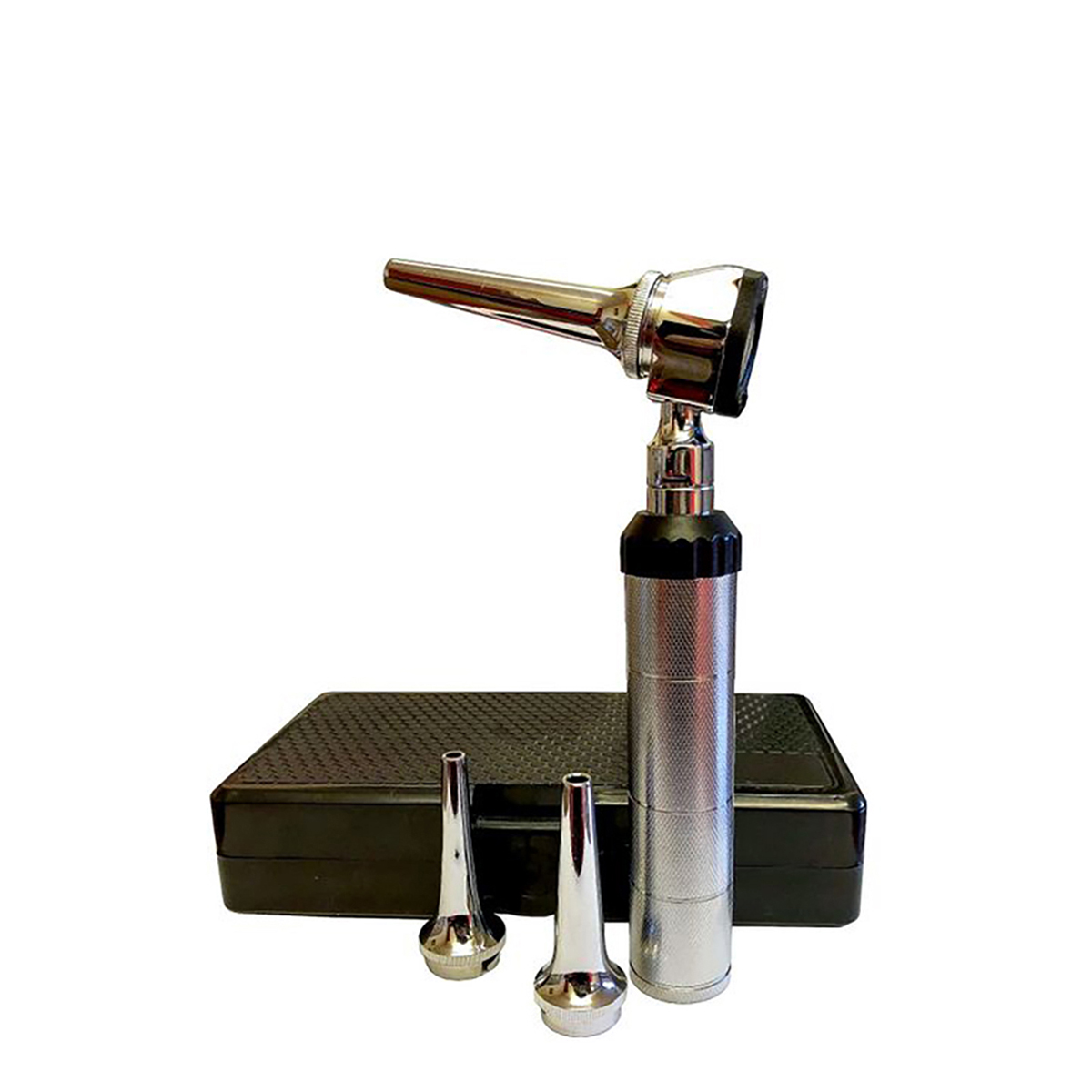
Need to check your dog or cat's ears? If you can keep them sat still long enough, this is a quality tool that delivers a firm grip, easy sterilization and high magnification.
Read more below
The best otoscopes
Why you can trust Digital Camera World
Best overall otoscope
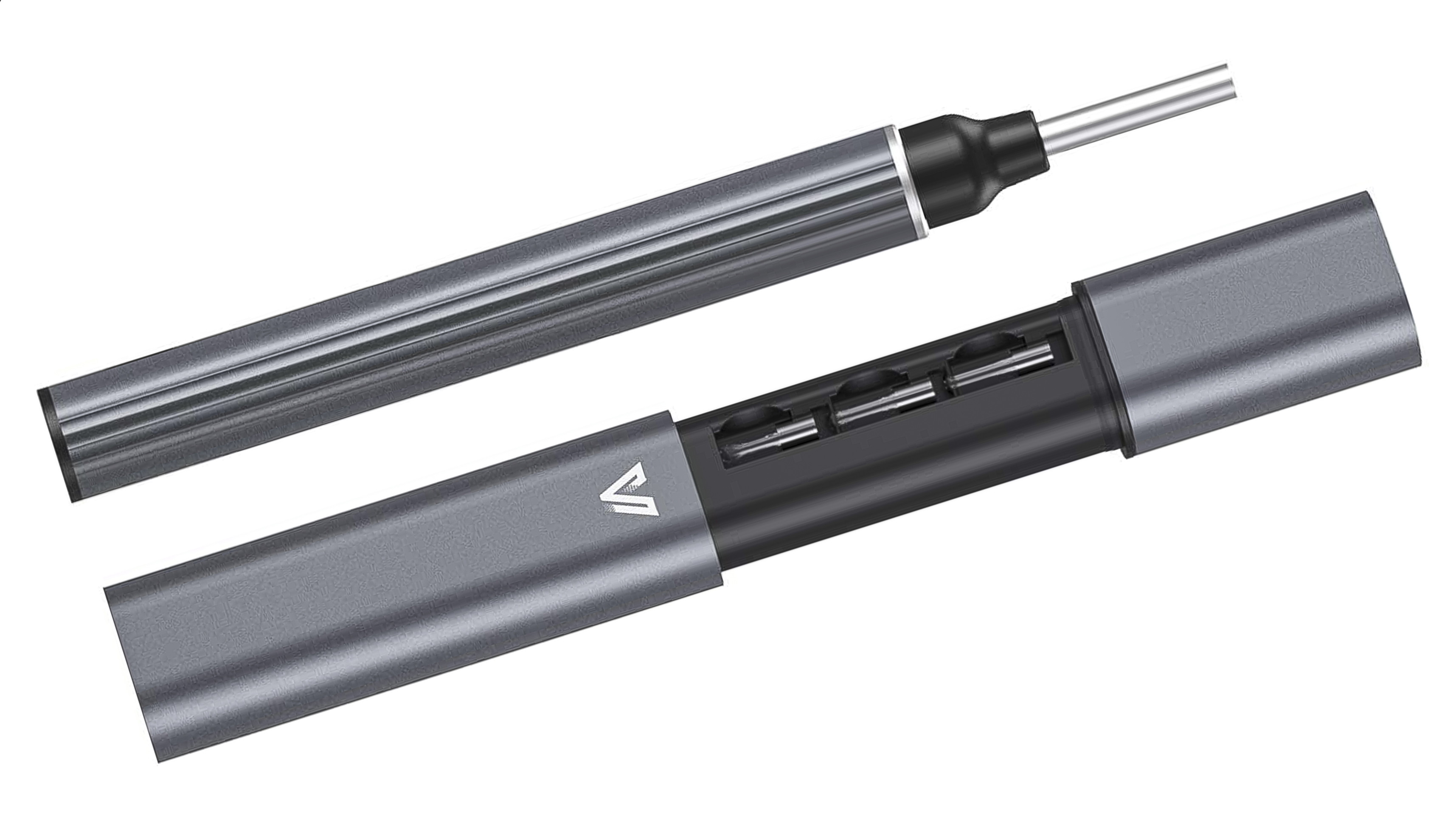
1. Vitcoco Otoscope
Specifications
Reasons to buy
Reasons to avoid
The Vitcoco Otoscope is digital, and you need to install an app on your smartphone to use it. It comes with a 5MP endoscope-like camera that's 3mm in diameter, surrounded by six LEDs, which can be adjusted for brightness. Best of all, you can inspect your own ear as well as those of others.
On the downside, lag is a slight issue, as is having the coordination to adjust your ear to get a clear view. But once you master it, you can attach one of the many tiny scoop-like tools to conduct your own earwax cleaning.
Only the lens is IP67 waterproof for cleaning, but that is enough, and the focal length is 1.5-2cm, which is closer than earlier otoscopes. The tidy design of the case is great too, as is the picture quality. And while it's not the cheapest on this list, it's very affordable. Taking all that into account, we'd say this is the best otoscope overall we can recommend today.
Best budget otoscope
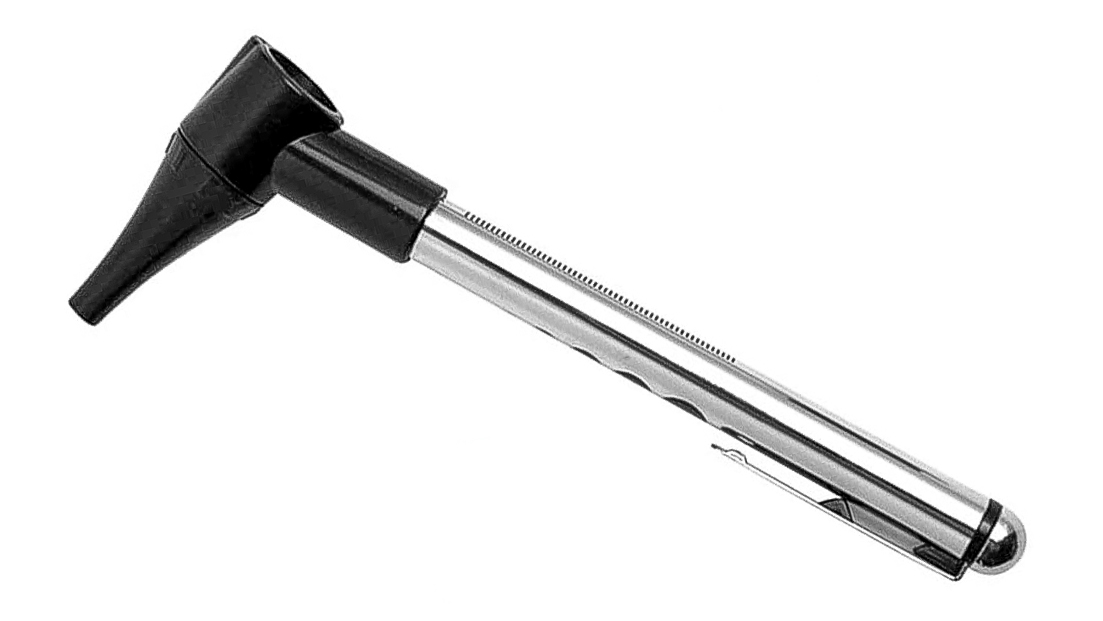
2. Bysameyee Otoscope
Specifications
Reasons to buy
Reasons to avoid
If all you’re looking for is a tool to sit in the first-aid drawer, in case you quickly check an ear, there's no need to spend a lot of cash. And this is the best cheap otoscope we can recommend today.
The Bysameyee Otoscope is cheap for a reason: it's essentially just an LED torch with an otoscope adapter, and some other accessories. Two AAA batteries live inside the stainless steel tube, likely providing all the power you’ll need for the device’s lifetime, though you might find that it needs a bit of a shake to get the power flowing. A tongue depressor is also included, so you can use this light for checking throats as well as ears.
Best otoscope for illumination
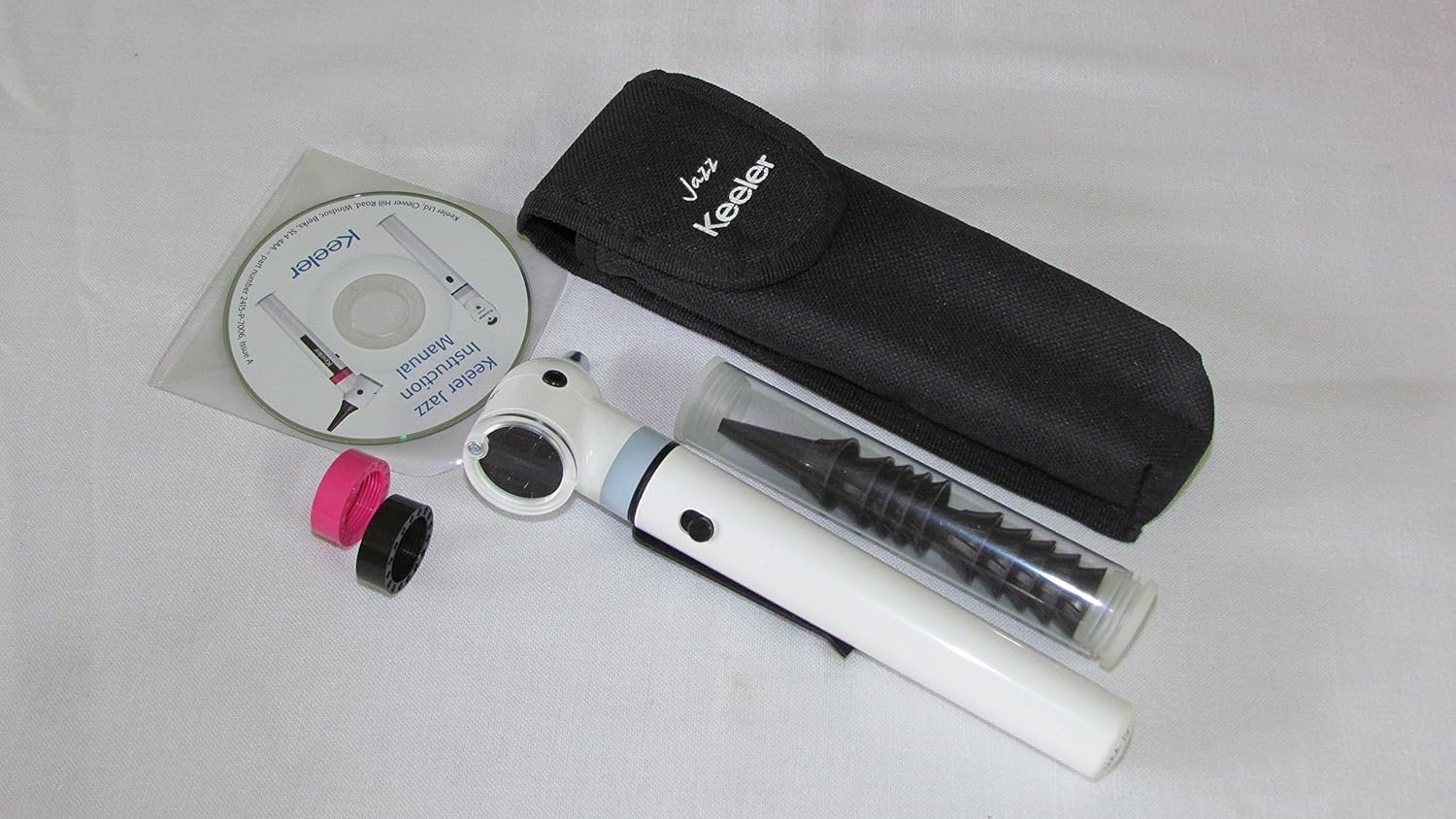
3. Keeler Jazz LED Pocket Otoscope
Specifications
Reasons to buy
Reasons to avoid
The Keeler Jazz LED Pocket Otoscope combines professional-grade examination capabilities with pocket-sized convenience. Made of durable glass-fiber reinforced plastic, this UK-manufactured device features powerful LED technology that delivers brighter, whiter light with reduced reflection for color-neutral illumination of the ear canal.
Unlike digital options, you cannot record examinations or inspect your own ears. The traditional design requires someone else to perform the examination. However, what you lose in self-examination capability, you gain in reliability and professional-grade optics with a 3x magnification lens that provides clear, detailed views.
The otoscope includes interchangeable colored rings to customize its appearance, and its slimline design fits neatly in your pocket. It comes with two permanent specula (2.5mm and 4mm diameters) and has a closed head design particularly suited for pneumatic testing. The strong metal pocket clip ensures security during transport.
Best otoscope for ear wax removal
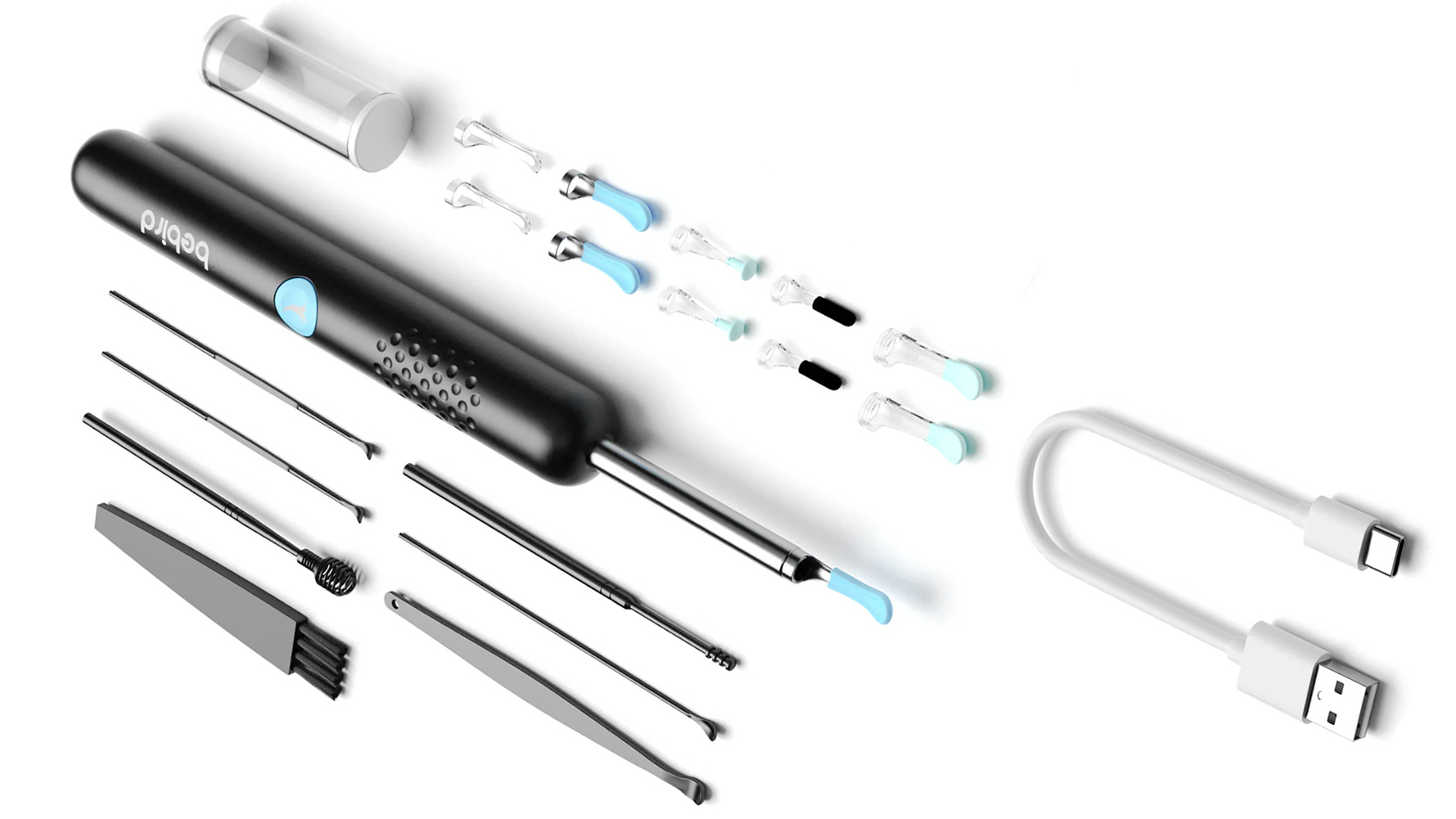
4. Bedird R1 Earwax Remover
Specifications
Reasons to buy
Reasons to avoid
Some people need to clean their ears more than others. Users of AirPods and other earbuds, for instance, can find it particularly difficult to keep wax under control. In which case, here's our recommendation.
What we like about the Bedird Earwax Remover is the choice of accessories included. There are six silicon tips of different shapes and sizes, plus a selection of tools to cover pets, or to clean mouths and noses.
The integrated 3-megapixel camera feeds a 1080p HD video to your iPhone or Android phone, so you have a good view as you clean. And it’s rechargeable, so you don’t need to swap out the battery.
Best otoscope for the family
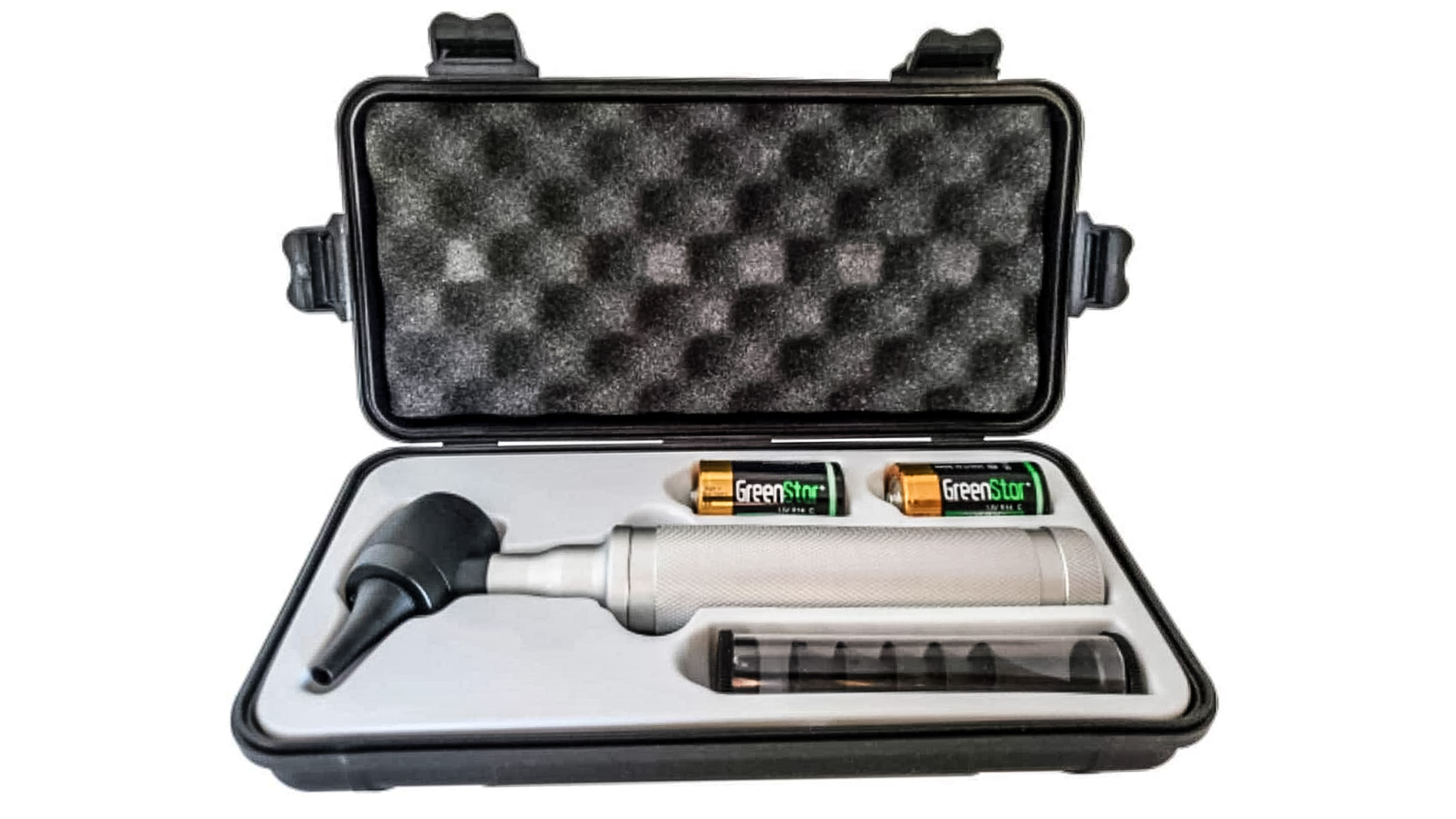
5. Dr Mom Professional Otoscope 5th Gen
Specifications
Reasons to buy
Reasons to avoid
As the name suggests, this otoscope is firmly aimed at concerned and responsible parents. While it's quite pricey, this pocket-size, traditional-style otoscope is well made, featuring an optical quality glass lens with anti-scratch treatment, a female insuflation outlet and the ability to add and remove a disposable specula.
The LED gives off bright light, a battery is included, and the lens provides good magnification. All in all, this is a quality product that would suit any home medicine cabinet.
Best otoscope for use with pets
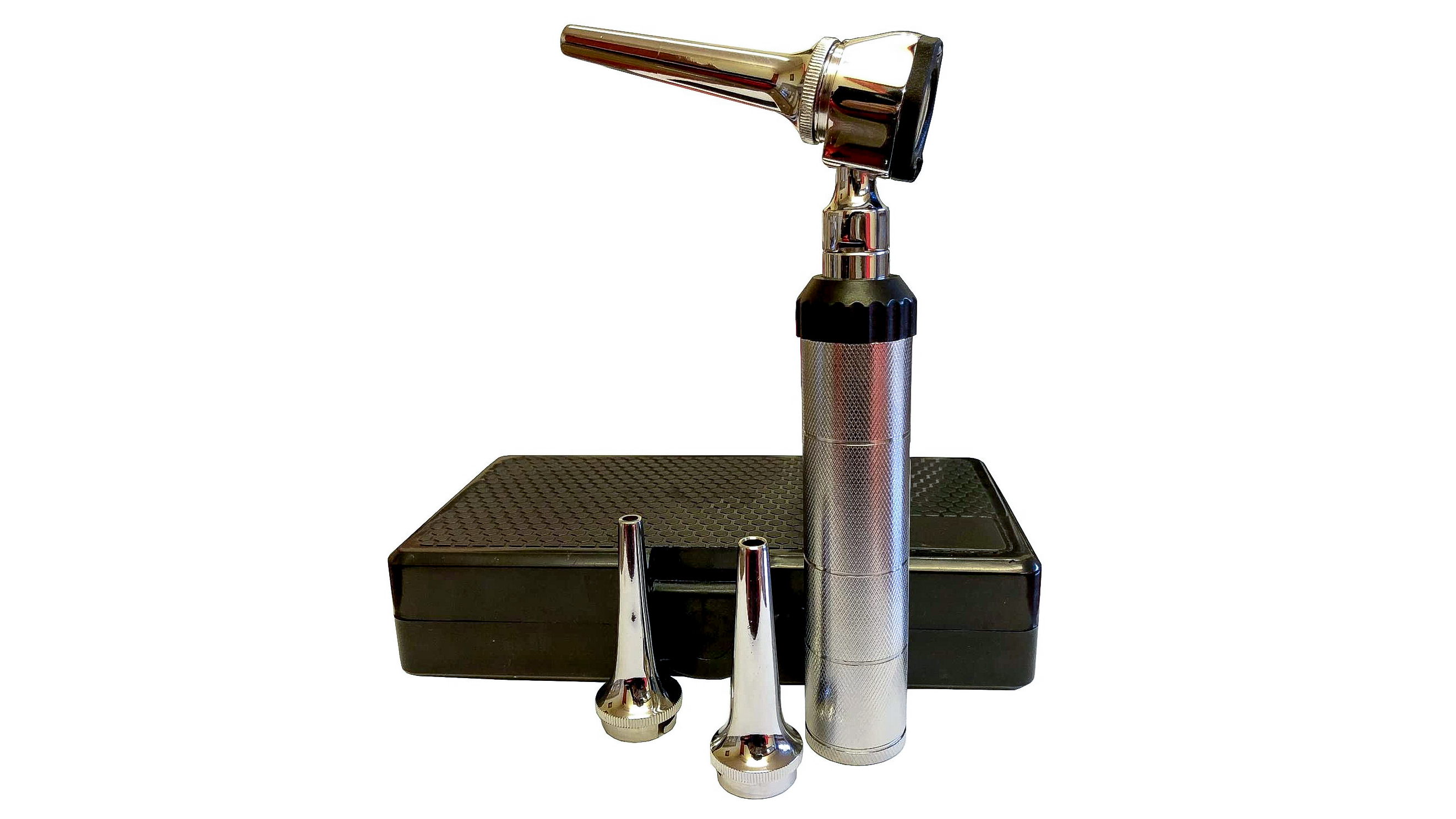
6. Equinox Veterinary Otoscope
Specifications
Reasons to buy
Reasons to avoid
Want to keep an eye on your pet's ears? This device is both good-looking and functional, with engraved metal providing you with a firm grip. The three polypropylene speculars (the pointy end) can be sterilized in an autoclave (medical washing machine) too, making this ideal for regular use.
The brightness is adjustable thanks to the rheostat at the top of the handle, which is easily manipulated with the thumb. Furthermore, the magnifying power is 4x, putting it ahead of most rivals. It’s a shame the storage box is plastic – somehow it feels like it deserves engraved wood – and, seriously, who uses ‘C’ batteries any more? Those are both minor niggles, though.
Best otoscope for medical students
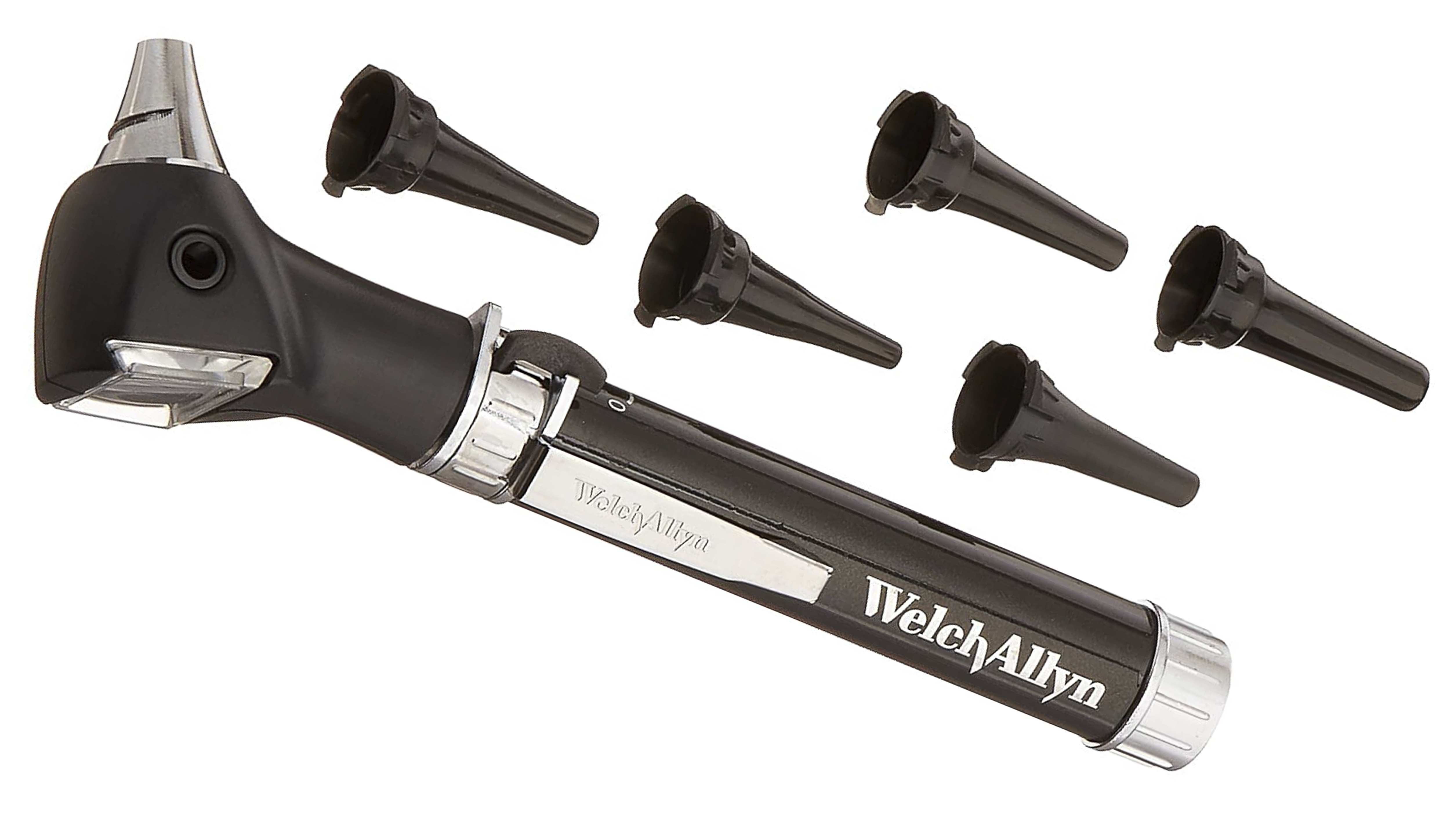
7. Welch Allyn Pocketscope Jr
Specifications
Reasons to buy
Reasons to avoid
Premium otoscopes from Welch Allyn are commonly used by medical practitioners in the US, and typically cost more than a $500. That's going to be overkill for home use, and even medical students might struggle with this cost. In which case, the Welch Allyn Pocketscope Jr provides a good alternative, offering real professional quality at a much more affordable cost.
While it has good consistent halogen illumination, cool and unobstructed thanks to fibre-optic design, the device – and especially the switch – doesn’t feel quite as tough as the premium models. Plus, you’ll have to swap traditional AA batteries from time to time rather than drop it in the charger.
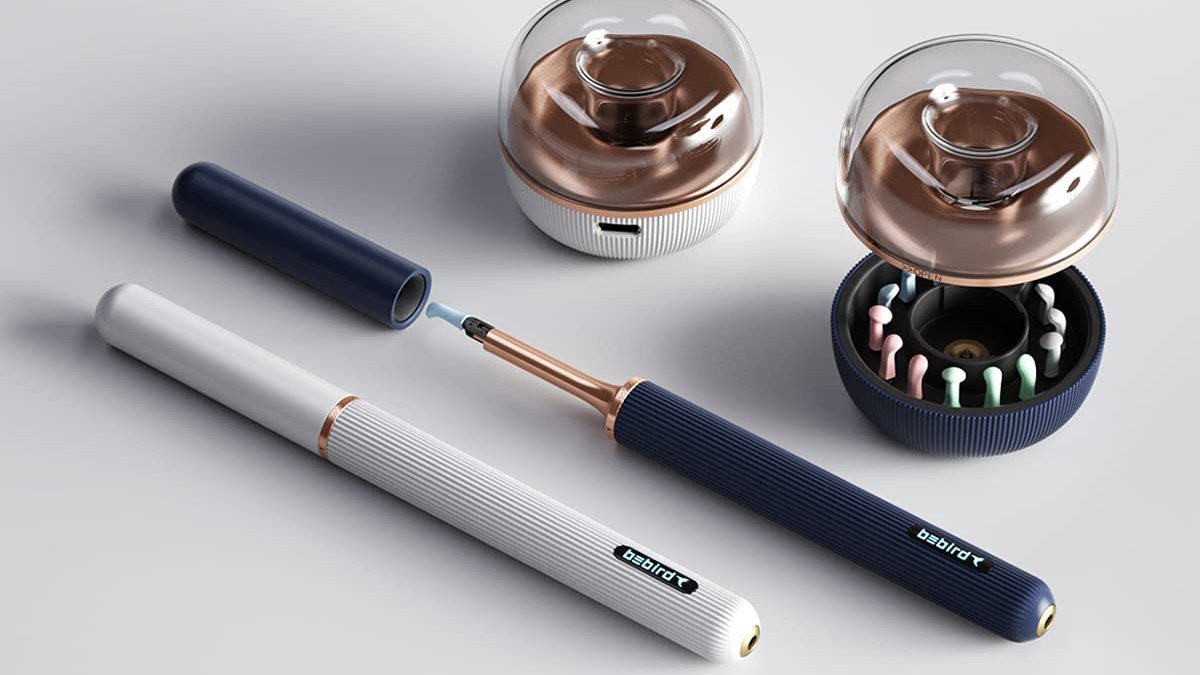
8. BEBIRD Note3 Pro Max
Specifications
Reasons to buy
Reasons to avoid
If you like the idea of cleaning ears with a tiny robot arm, this is the device for you. The Bebird Note3 Pro is a Wi-Fi otoscope with tiny robot tweezers, which give you more precise mechanical control within the ear.
Clamping and releasing is done via the app, which seems strange at first, but a button in the arm might make it hard to hold steady. Nevertheless this is an exciting option to have, and for some with tricky dry wax or clipping it offers a choice others simply don’t, even if the average hair will not be pulled by them.
How to choose the best otoscope
An otoscope is an essential tool for healthcare professionals, allowing for a visual examination of the ear canal and tympanic membrane. When selecting the right otoscope, there are several factors to take into consideration.
First, the light source should be bright and adjustable. LED lights are often preferred due to their longevity, energy efficiency and ability to provide clear illumination in dark environments. The magnification level should be appropriate for the specific needs of the user. For general practice, a magnification of 3x to 5x is typically sufficient. However, for more detailed examinations or specialized applications, higher magnification levels may be necessary.
The otoscope head should be lightweight and comfortable to hold, with a sturdy and secure handle. Some otoscopes come with a variety of attachments, including specula of different sizes and shapes. Ensure the model you choose is compatible with the attachments you need. Additionally, consider the battery life, especially if you'll be using the otoscope frequently or in remote locations. Some models offer rechargeable batteries, while others use disposables.
Finally, a reputable otoscope manufacturer will provide a warranty to protect your investment. Also consider the availability of customer support and technical assistance in case you encounter any issues.
FAQs
Is it safe to use an otoscope on myself or my family members?
Yes, otoscopes are generally safe for home use, but they should be used with care. It's crucial to avoid inserting the otoscope too deeply into the ear canal, as this can damage the eardrum or other delicate structures. If you're unsure how to use it properly, consult a healthcare professional for guidance. Also, if you experience any pain or discomfort while using the otoscope, stop immediately and seek medical advice.
What are the benefits of using a digital otoscope compared to a traditional one?
Digital otoscopes offer several advantages. They typically provide a clearer and more magnified view of the ear canal, and some even offer the ability to capture images or videos that can be shared with a doctor. This can be especially helpful for monitoring ear conditions over time or getting a second opinion remotely. Digital otoscopes often connect to smartphones or tablets, making them convenient and easy to use.
What is an otoscope?
An otoscope is a medical device used to examine the ear canal and eardrum. The traditional otoscope consists of a light source and a magnifying lens, while modern versions often use digital camera technology. The primary purpose of an otoscope is to visually inspect the ear canal and eardrum for signs of infection, injury, earwax buildup, or other ear-related issues.
Why buy an otoscope?
Regular inspections with the best otoscope can help you catch problems such as hearing loss, ear pain, discharge or lumps early, and alert your doctor or vet, who can stop them developing further and hopefully treat them. That makes an otoscope an important investment in the health of your loved ones.
Who can use an otoscope?
Otoscopes are used by healthcare professionals, including doctors, nurses, audiologists, and ear, nose, and throat (ENT) specialists, to examine patients' ears. Parents or caregivers may also use home otoscopes to monitor ear health in children or themselves.
However, it is essential to receive proper training and guidance on how to use them safely and effectively. Improper use of an otoscope may lead to damage to the ear canal, or push earwax further into the ear canal, leading to earwax impaction. Inserting the otoscope too deeply or aggressively can damage the eardrum, potentially causing hearing loss, bleeding, or a perforation of the eardrum.
One final danger is that inexperienced or untrained users may miss important diagnostic signs or misinterpret what they see in the ear canal, potentially leading to missed medical conditions or incorrect treatment.
What are the two types of otoscope?
There are two types of otoscope: traditional optical otoscopes, and ones that incorporate digital cameras. The former, which are often used by doctors, tend to feature a light and lens with about 3x magnification. Modern versions are more like a borescope, a favorite tool of DIY enthusiasts. Some even let you examine your own ears.
What maintenance do otoscopes require?
Otoscopes should be cleaned and disinfected according to the manufacturer's instructions to prevent cross-contamination. If this does not happen, it can spread infections from one person to another. Regular maintenance includes replacing light bulbs, ensuring proper functioning of the device, and keeping it in a clean, protective case.
What are the main parts of an otoscope?
An otoscope typically consists of the following parts:
Handle: The part of the otoscope that you hold. It usually contains the batteries or power source for the light.
Head: Contains the light source and magnifying lens.
Speculum: A cone-shaped plastic tip that is attached to the head of the otoscope, and is inserted into the ear canal to help visualize the eardrum.

Here's our best budget buy. There’s not a lot to this otoscope, but its low price and decent functionality means it’s still a good option to keep around in case it’s needed.
Read more below
Get the Digital Camera World Newsletter
The best camera deals, reviews, product advice, and unmissable photography news, direct to your inbox!

With over 20 years of expertise as a tech journalist, Adam brings a wealth of knowledge across a vast number of product categories, including timelapse cameras, home security cameras, NVR cameras, photography books, webcams, 3D printers and 3D scanners, borescopes, radar detectors… and, above all, drones.
Adam is our resident expert on all aspects of camera drones and drone photography, from buying guides on the best choices for aerial photographers of all ability levels to the latest rules and regulations on piloting drones.
He is the author of a number of books including The Complete Guide to Drones, The Smart Smart Home Handbook, 101 Tips for DSLR Video and The Drone Pilot's Handbook.
